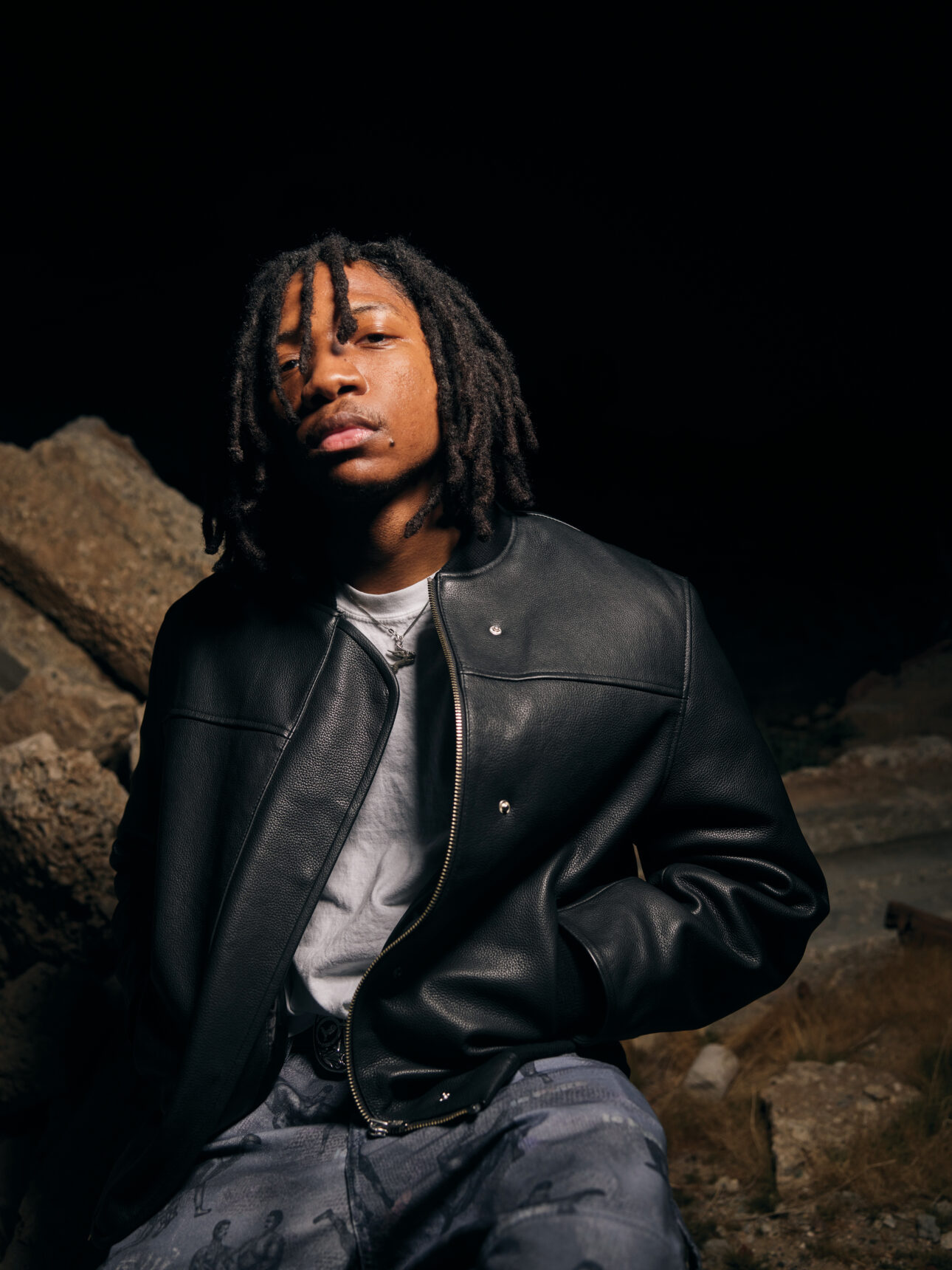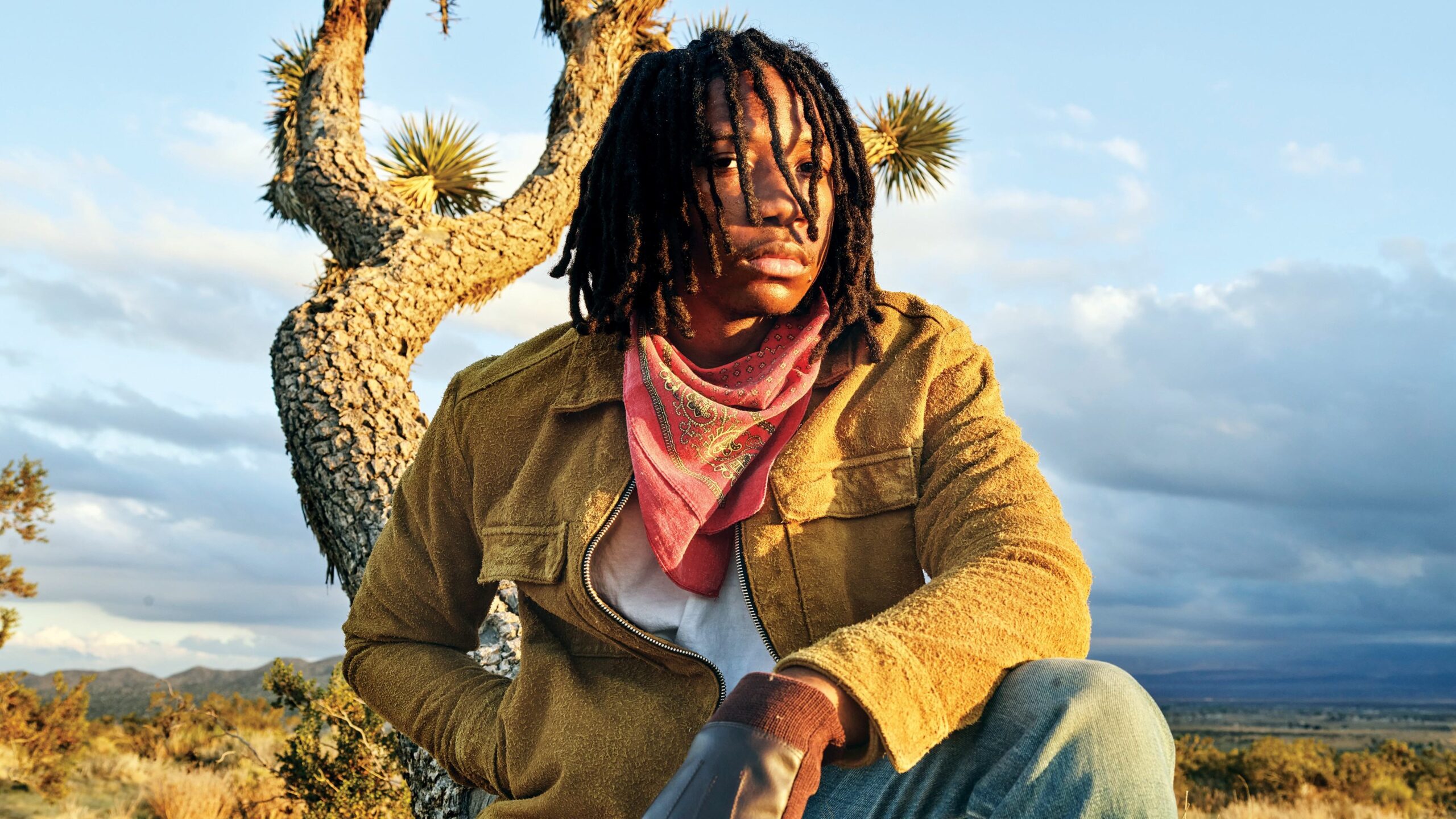When rapper/songwriter Kenny Mason released his debut single, “Hit,” in 2019, he was intentionally magnifying a version of Atlanta that many people outside of it probably didn’t think existed. The song and accompanying video were odes to the energy of the era, featuring voices of adolescent scammers plotting on their next “hit,” followed by Mason breathlessly rapping in double time about doing everything short of getting a job to secure his next meal, while wearing an Atlanta Braves jersey and dirty sneakers and hanging out of the side of a car riding through the working-class West End neighborhood in the video.
“Hit” was a stark contrast from the musings of other Atlanta rappers at the time who were enjoying the spoils of the city’s decades-long run of musical dominance, choosing to film videos in luxurious landscapes, bragging about the things that they, but not their fans, could afford. Even though the song didn’t penetrate local radio, it racked up more than 5 million plays on YouTube.
“I performed that song at two or three underground shows, and by the time I did the fourth one, motherfuckers knew all the words already, and it wasn’t even out,” says Kenny about the initial impact of the song and why he made it his introduction to the rest of the world. “I’m grateful for that because that’s what made me. I wanted to have some shit that represented everybody.”
Since his 2020 debut album, Angelic Hoodrat, his fanbase, or “pups” as they like to call themselves, grew to love him for making music with everybody in mind. Each of his projects, including March 2024’s 9, take listeners on musical mood swings where they sing along to emo-styled tracks like “Slip” or rap along to the nimble “Jumpin In.” His performances feature several pendulum swings. The result is a show where one section is focused on reciting his lyrics, while the other is throwing their bodies into each other in a mosh pit.
“I like to make the crowd visualize what I’m saying, all while turning up,” says Mason, a movie buff who talks about using dialog in films as inspiration for his storytelling. His catalog of narrative-driven videos supports that. “I make music so that when it’s live, you’re experiencing that shit like you at the theaters. But I want it to be subconscious, so you just feel it. You don’t gotta think about it.”
His early subconscious was shaped by his father’s tastes, hearing 2Pac, T.I., and Lil Wayne riding in the back of the car. But as he came into his own, he discovered bands like Deftones, Smashing Pumpkins, and My Bloody Valentine through video games and watching YouTube.
Despite coming of age in the rap capital of the world, Mason’s childhood interests initially leaned towards wanting to be a “fire ass Jimi Hendrix-type guitar player just making songs and shit.” He started on that path by taking guitar lessons at 13, but after two sessions his family told him it was too expensive and that he’d have to find another hobby.
“At least they tried,” says Kenny, who was raised bouncing around gritty South and West Atlanta neighborhoods often mentioned in studies highlighting economic opportunity gaps for Black children like himself. Today his home studio has two guitars that he occasionally tinkers with. “Just them two days opened my mind to there’s more out there because where I’m from I only seen niggas do three things: sports, rapping, or trapping.”


Kenny Mason, 29, was born the same year Outkast put Atlanta on the map with their debut Southernplayalisticaddilacmusic. So for his entire life, he’s seen rapping as an actual job occupation in the city. People may move there for companies like The Home Depot and Delta, but rappers are taken just as seriously. Gucci Mane has spoken at middle school career days, Killer Mike was on former mayor Keisha Lance Bottoms’ transition team, and T.I. owns and operates a museum dedicated to trap music and has taught a course on the genre at Clark Atlanta University. And the ultra successes of stars like Migos and Future meant it didn’t seem far-fetched for Mason to focus on music.
Unlike many of his peers who have focused exclusively on appealing to a rap-centered crowd, Kenny started his journey wanting to touch as many different groups as possible, performing at varying Atlanta underground launching pads like 992 Gallery, Mammal Gallery, Music Room, Rowdy Dowdy, and Department Store. For a frame of reference, shows at these venues could look like The Shelter from Eminem’s 8 Mile one night and First Avenue in Prince’s Purple Rain the next.
“I was confident in my ability to make songs, but I had to learn how to perform for a crowd who’s looking at you like you ain’t shit and win them over,” he says.
That benefited him as he’s been able to play Lollapalooza, join J.I.D. at Governor’s Ball, and be an opening act for Danny Brown and JPEGMAFIA’s Scaring the Hoes tour.
But it has also made cracking the mainstream consciousness a slow process, compared to hometown contemporaries like Lil Baby, who is easily identifiable for casual listeners. He says as much on “Facts,” where he raps: “My homie said you got a foot in two different worlds / You know you confuse ’em / At first, it might cause some confusion / That’s how you know that you startin’ a movement.”
“Kenny is building a catalog of music and growing with it. He’s not an artist who will have a big song one year and then disappear,” says “Facts” producer and frequent collaborator Coupe, who produced platinum records for fellow Atlantans 21 Savage and Young Nudy. He adds that Kenny’s slow rise is setting him up to have an impact that mirrors J. Cole or Kendrick Lamar. “There’s a lot of people who can rap, but can’t do drippy music. Then there’s people who can do drippy music but don’t have any bars. Kenny can do it all.”
“All music has a DNA to it,” says Mason, who has collaborated with musicians from Memphis rap legend Project Pat to genre-fluid producer Toro y Moi. “You can like a certain type of music for whatever reason, but that same reason can be embedded in a different genre.”
In 2023, Atlanta’s favorite son, Andre 3000, all but shut the door on his rap career by releasing a flute album and insisting that rapping is a young man’s sport. The previous year Atlanta’s troubled son Young Thug was shut behind bars on RICO charges, bringing his output to a halt. With two of the city’s oldest and youngest innovators absent, and the city’s population growing in diversity, it feels like there is space for someone new, mold-breaking to redefine the city’s sound.
“Kenny personifies the beautiful hybrid that Atlanta is. He’s the totality of a Black kid that grows up in the city limits,” says Killer Mike. “He can do everything rap wise and do a Nirvana cover of ‘Smells Like Teen Spirit’ that will blow your top off. I’ve seen more kids like him produced in Atlanta than I have the different extremes we’re known for. Atlanta needs to embrace him the same way he embraces all of us for what we are and who we are.”
“I think [Atlanta] is just in a transition period, bro, kinda like a renaissance,” Kenny tells me, not sounding convinced it’s his turn to take the mantle or that the city is ready to fully support what he’s doing. “But some of the listeners and people in the community here need to kinda change their ears a little bit and be more open to new sounds.
“People are always comparing me to some superstar or someone who has been in the game for 10 or 15-plus years,” says Mason, who sees and hears comments calling him “underrated” or “next to blow.” “I take it as a compliment. They’re viewing me as an artist who can have longevity and putting me in a hierarchy of artists who have been around for a long time.”

